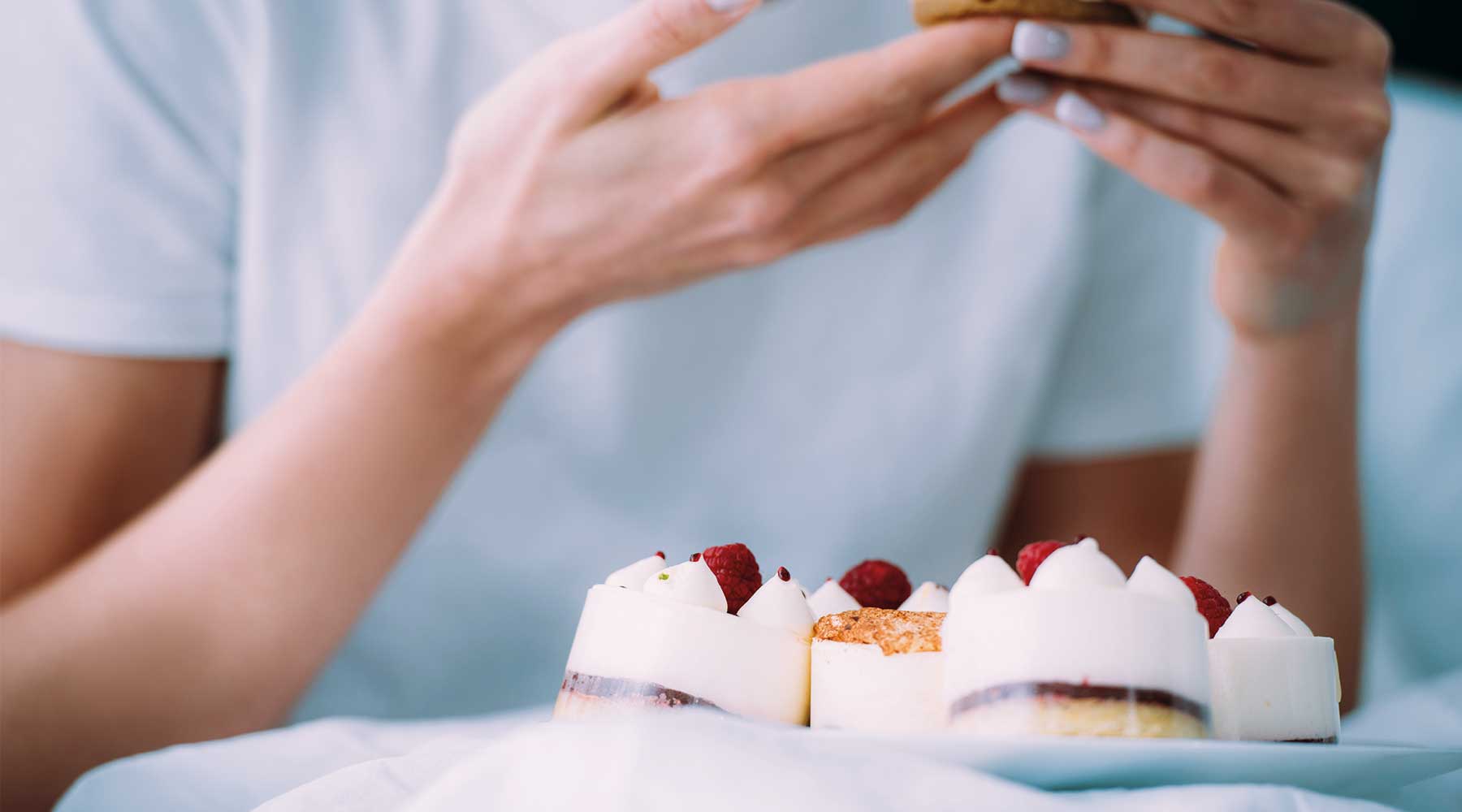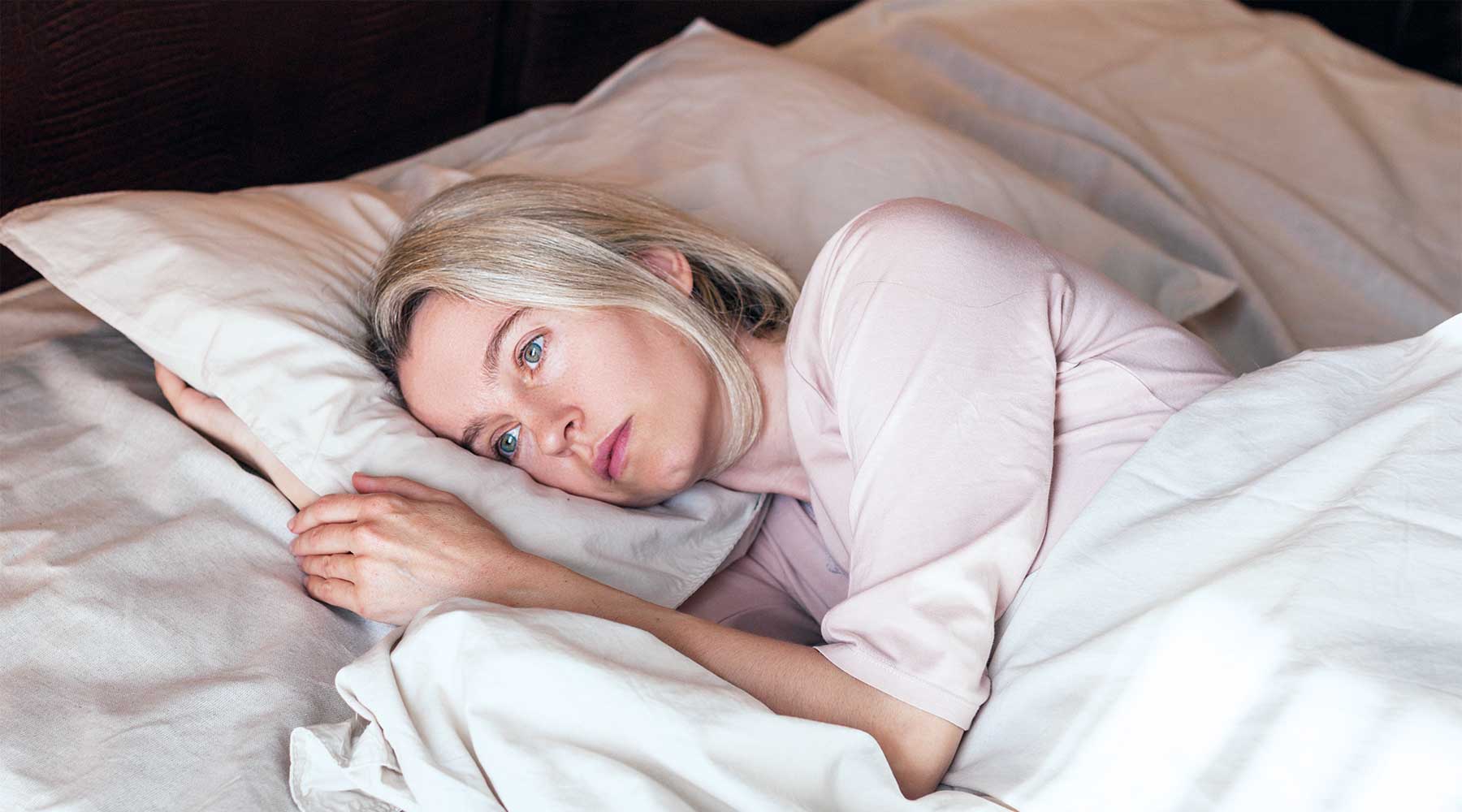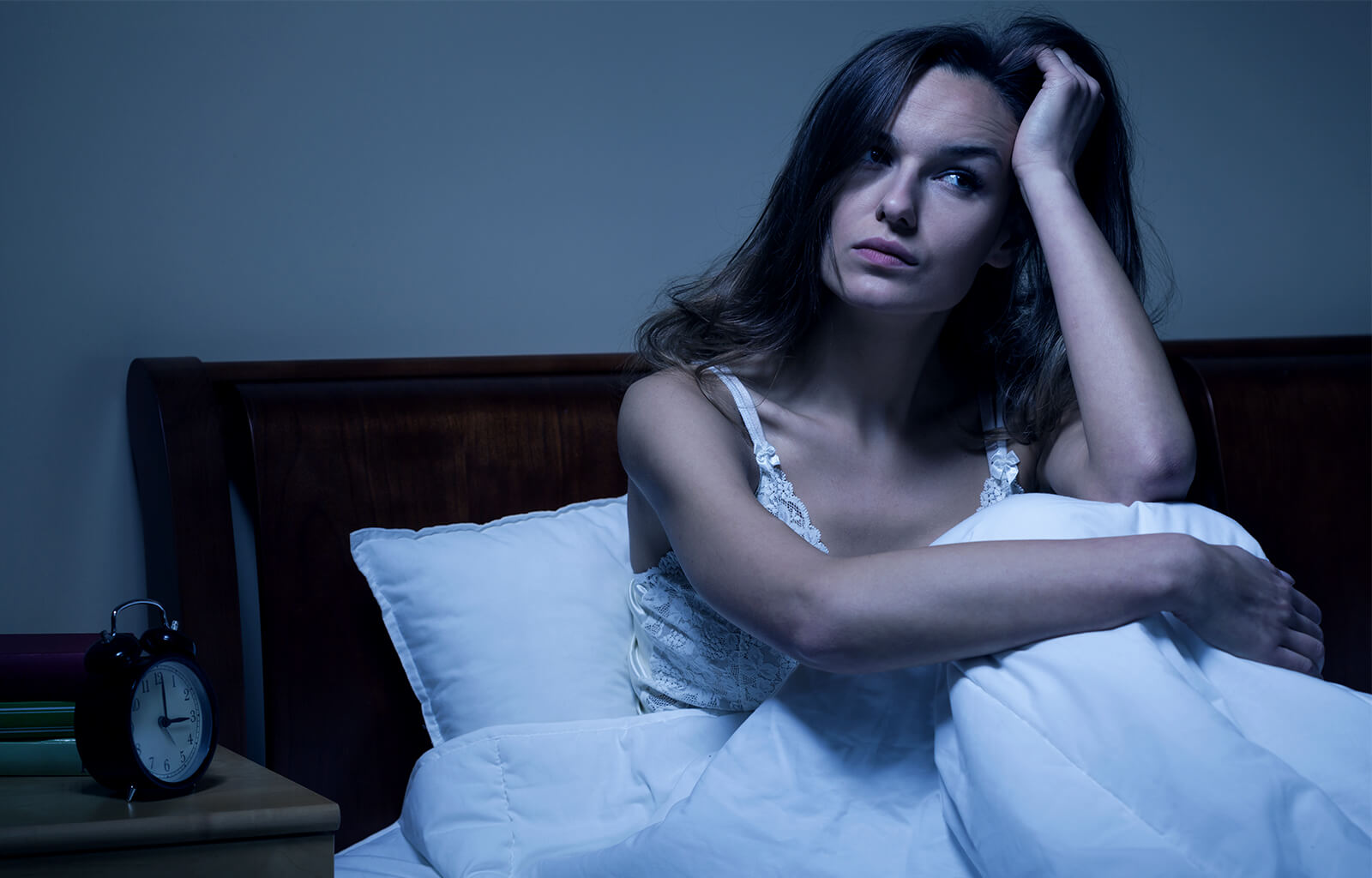
Sugar harms the sleep ?
Sugar is a natural part of our daily diet. However, too much sugar is bad for our health and can also disrupt sleep. We explain here how sugar affects sleep and why you should avoid that extra portion of sweets in the evening.
Table of contents
- What is sugar?
- The Effect of Sugar
- Does sugar disturb sleep?
- The right diet in the evening
- Conclusion
1. What exactly is sugar?

Sugar belongs to the nutrient group of carbohydrates and is found in numerous foods in our daily diet. A basic distinction is made between so-called simple sugars (monosaccharides) and complex sugars (polysaccharides). Simple sugars such as fructose (fruit sugar) and glucose (grape sugar) can combine with each other and thus form the basis for disaccharides or complex sugars such as sucrose, the well-known white household sugar.
2. The Effect of Sugar
As soon as we eat something, numerous digestive processes begin in the body, during which the sugar contained in the food is broken down into its individual components. Glucose and fructose then enter the bloodstream via the intestines and initially cause the blood sugar level to rise. This activates the production of the hormone insulin, which helps to transport the sugar molecules more quickly through the bloodstream to the cells and organs. There, the absorbed glucose is converted into energy or stored in the form of fat, while fructose is mostly processed in our liver.

The glycemic index (GI) indicates how quickly the carbohydrates in a food cause the blood sugar level to rise and is particularly high for foods with a high sugar content. Sugar is therefore considered an effective and quick source of energy that can support the performance of the body and brain in the short term. The rapid and high rise is followed by an equally rapid drop in blood sugar levels, which can also have a negative impact on health. The high blood sugar level and the resulting increased release of insulin also influences the feeling of hunger and satiety, which increases appetite or can cause cravings. Too much sugar can lead to diabetes, obesity and cardiovascular diseases and also significantly impair sleep.
Does sugar disturb sleep?
Sugar causes blood sugar levels to rise quickly and provides our body with readily available energy. This increases performance and makes us more alert, which means we have a harder time relaxing in the evening and falling asleep. However, after a few hours, blood sugar levels drop again quickly, which means we wake up more easily and more often.
In addition, according to various studies, the sleep hormone melatonin plays an important role in regulating blood sugar levels. The increased melatonin level in the evening inhibits insulin secretion, which means that the glucose absorbed stays in the bloodstream longer and is broken down less quickly. This also slows down the release of energy and causes more frequent awakenings during sleep because the blood sugar level fluctuates.
In this way, sleep is repeatedly interrupted and regenerative deep sleep is disturbed, so that we feel less rested the next morning.A study from 2016 also showed that increased sugar consumption led to significantly less restful and more restless sleep and shortened the deep sleep phase of the subjects.
At the same time, however, a lack of sleep also affects the function of hunger and satiety hormones, causing a stronger feeling of hunger during the day. Studies show that people eat more, more often and, above all, eat more sugary and fatty foods during the day if they have not slept enough the night before. So be careful: the more sugar we consume, the worse we sleep, and the worse we sleep, the more our body craves sugar and food energy.
4. The right diet in the evening
Basically, you should of course make sure you eat a balanced, healthy diet throughout the day and eat sugary foods in moderation. You can find more information on sleep and nutrition here.
In order not to disturb your sleep, you should follow these tips in the evening:
➨ Your last, rather light meal should be eaten 2-3 hours before going to bed and should not be too large so that the digestive processes do not disturb your sleep.
➨ Avoid foods that are high in sugar and fat in the evening and consume them during the day so that your blood sugar level does not rise before you go to bed.
➨ If you do eat a lot of sugar at once, try combining it with foods rich in fiber. They cause your blood sugar level to rise more slowly after eating.
However, there are numerous nutrients and foods that, unlike sugar, can have a positive effect on sleep. You can read more about this in these articles:
5. Conclusion
-
Sugar is a carbohydrate that provides the body with quick energy.
-
Increased sugar consumption before bedtime can disrupt sleep and shorten deep sleep phases, making us feel less rested and lacking energy.
-
Combine sugary foods with foods rich in fiber and have a light, low-sugar meal in the evening, 2-3 hours before going to bed.
Best regards and see you soon!




Leave a comment
This site is protected by hCaptcha and the hCaptcha Privacy Policy and Terms of Service apply.